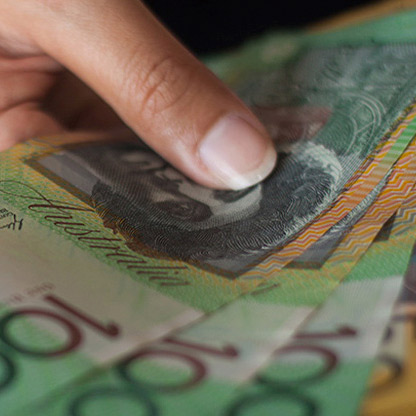1. Plan for irregular bills & expenses
Planning ahead for expenses such as your car registration, services and visits to the dentist means you can factor them into your budget. Don’t forget irregular events such as weddings and birthdays, which can also be costly.
When you set your budget, make sure you account for your annual, monthly and quarterly bills so large bills don’t come as an unexpected shock. Mark them in your calendar so you can save for them.
If you’re with CommBank, try using Bill Sense, in the app. Bill Sense predicts your upcoming bills based on your transaction history. You can add bills to your timeline so you can see which ones are due and when for the next 12 months, which can help you put extra money aside for future bills.
2. Set money aside in a rainy day fund
Having a financial buffer in a separate account can help you stay on track when you have an unexpected expense. You could think of this buffer as your rainy day fund. You might need to use your rainy day fund for large unexpected costs such as:
- Unexpected home repairs
- Major appliances that have broken
- Medical bills that cost more than you anticipated
Make sure your rainy day fund is easy to access so you can quickly take out the money when you need it. And try to keep this money separate to your regular account so you don’t spend your rainy day money on every day items. You can set a scheduled payment from your transaction account to keep your rainy day fund topped up.
3. Have an account just for emergencies
While it’s good to hope for the best, it can help to plan for the worst. This means setting aside a portion of money to only be used in the event of an emergency, so if the unexpected happens you can bounce back from financial shock without needing to borrow money.
An emergency event could be:
- Job loss or a stint of unemployment
- Illness or medical emergencies
- Carer duties or being unfit to work
- Natural disaster
It’s important to work out when you will break your emergency fund, so you don’t begin to rely on it for everyday items. Find out how much to set aside based on your personal situation.
You can set up an emergency fund or a rainy day fund by setting up a scheduled payment into a new account. If you use the CommBank app and have a NetBank Saver orGoalSaver account, you can set this up using Goal Tracker.
4. Insure what you can't afford to replace
It’s great to know you can pay to replace a broken appliance or get your car fixed without having to go into debt. But there are some things you might not be able to afford to replace.
You’re required to have third party insurance if you own a car in Australia. Many lenders also require insurance if you are buying a home.
If you are thinking about whether to insure something, you might like to ask yourself whether you could afford to lose the item or cover the cost of it with money you have in savings.
Keep in mind insurance is complex and there are terms, exclusions and limitations you need to understand so you are not left without an umbrella on a rainy day.



